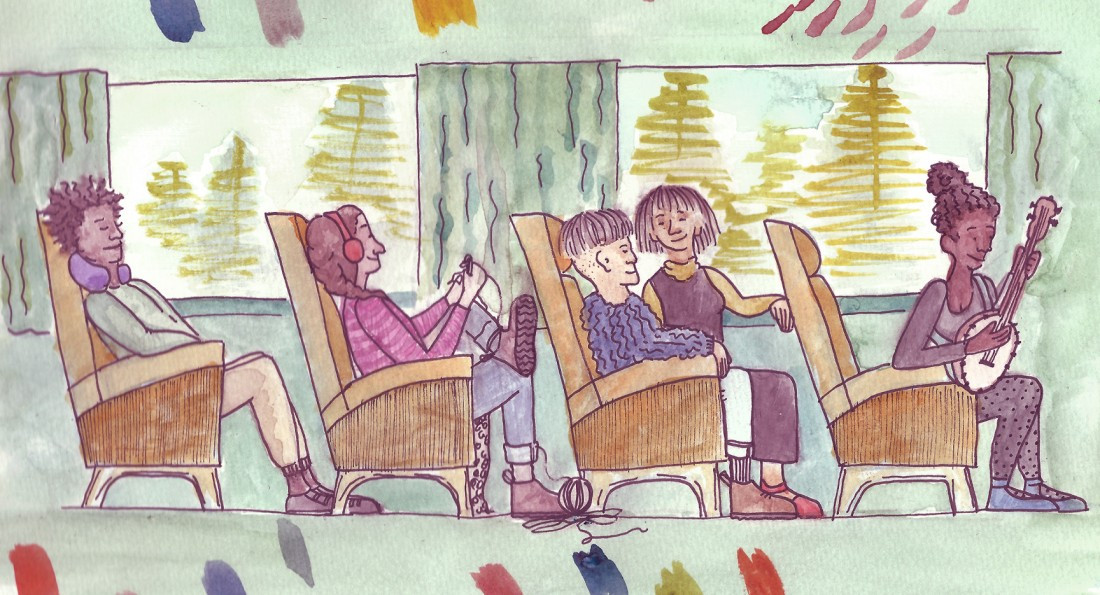Travel by train
A more romantic way to get from point A to B
Train travel requires extra planning and greater flexibility, but it pays off in spades.
“There’s something about air travel, being flung so far across the Earth’s surface, that’s so unnatural. The train is a more human pace,” singer-songwriter Raine Hamilton says.
Kate Sinclaire, who worked for VIA Rail for five years, agrees.
“On the train, there are socializing areas, and you can have a drink with someone from the place you are going through or meet someone from across the world,” Sinclaire says. “You really get more out of your travel experience than if you got on a plane and sat quietly next to someone. The journey becomes part of your trip.”
While first class train accommodations are pricey, the economy section is affordable.
VIA Rail has a special offers link on its website that highlights current deals, and following them on Facebook is a good way to keep track of promotional runs.
Sinclaire says there are even options for getting a good night’s sleep in economy class.
“When you are on board, you can ask to upgrade to a night rate without all the bells and whistles, so you can be comfortable without spending as much money,” Sinclaire says.
If upgrading to a bed, don’t forget to tip the porter. Sinclaire suggests $5 for one night, $20 for multiple nights.
VIA Rail also has a program called Artists on Board, which offers artists the opportunity to exchange their skills for food and first-class accommodation.
“They are interested in having acoustic music, original content and Canadian content on the train,” Hamilton says. “So I play original stuff while also pulling from the Canadian canon: Joni Mitchell, Neil Young and Gordon Lightfoot.”
Hamilton says Artists on Board was designed mostly for musicians and performance artists, but she’s also heard of structural artists participating in the program, interacting with the passengers through knitting and sketching.
The only downside to train travel are the delays, which can range from minor to significant. Sinclaire suggests not booking any travel on the planned arrival date. If connecting to a flight somewhere, leave a day of buffer time, just in case.
When packing for a train trip, Hamilton recommends a sleeping mask, earplugs and playing cards, while Sinclaire suggests a blanket, notebook and cash, along with weather-dependent gear.
Sinclaire says although summer is peak train travel season, winter travel is also great.
“There is beauty in the silence of a trip in the winter. There are fewer people, and everything just feels slower. If you are looking for the best (Canadian) experience, go in summer, because everywhere has festivals and you can do something interesting everywhere. But if you are looking for off-the-beaten-path stuff, fall and winter can be really fun if you do your research.”
Published in Volume 71, Number 14 of The Uniter (January 5, 2017)





